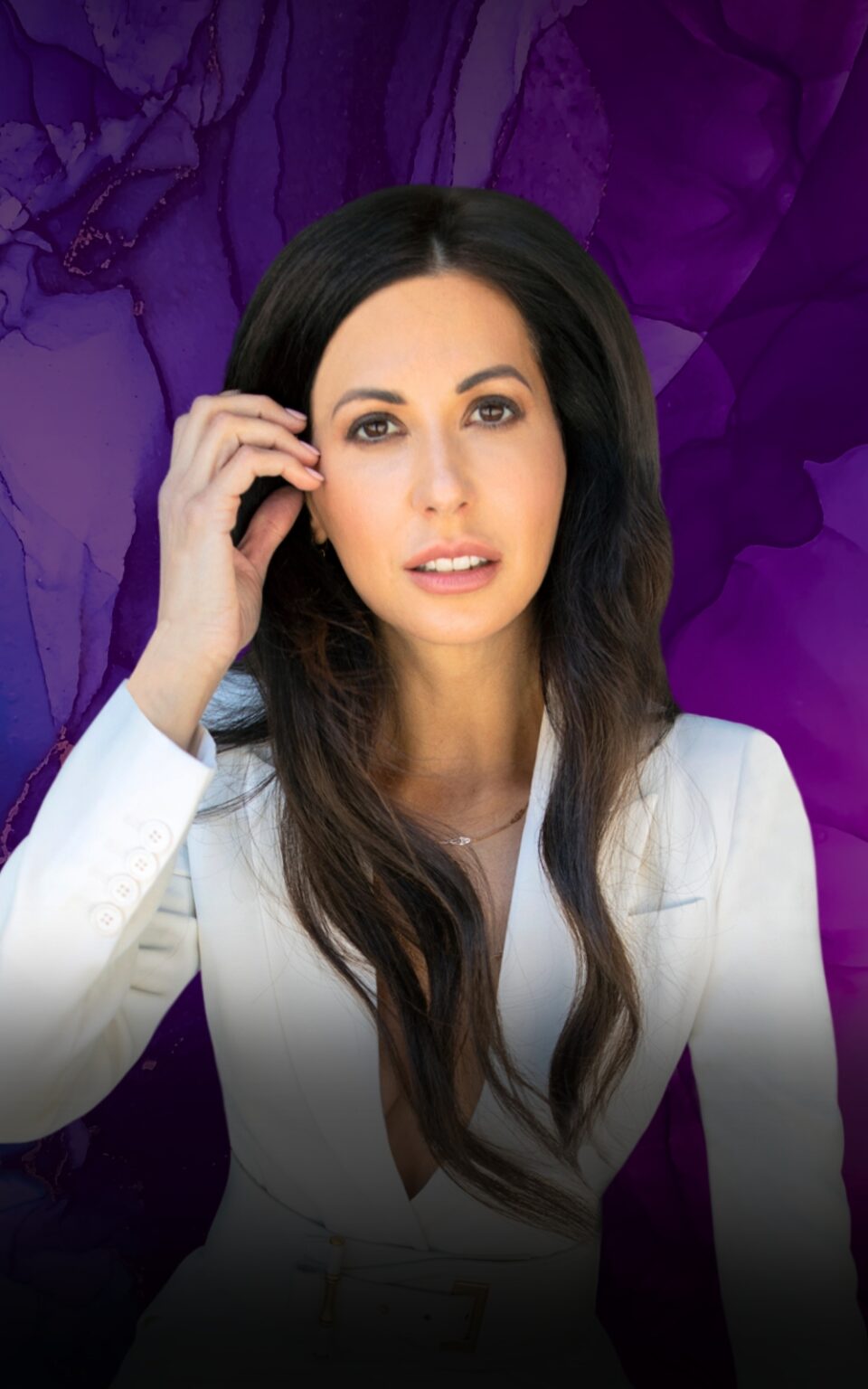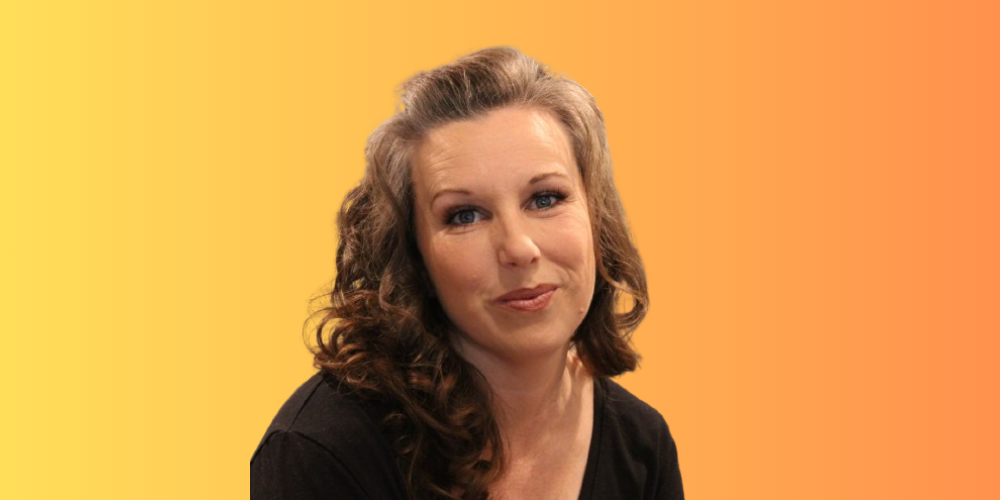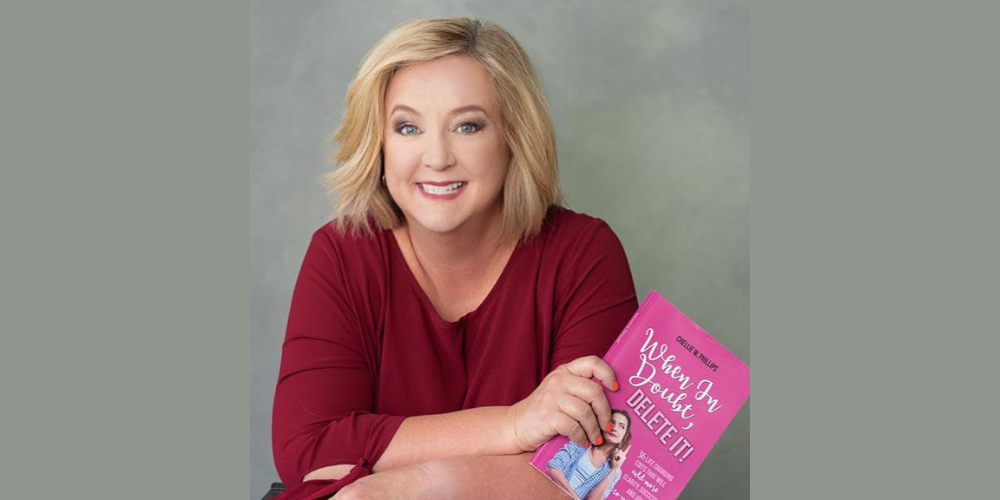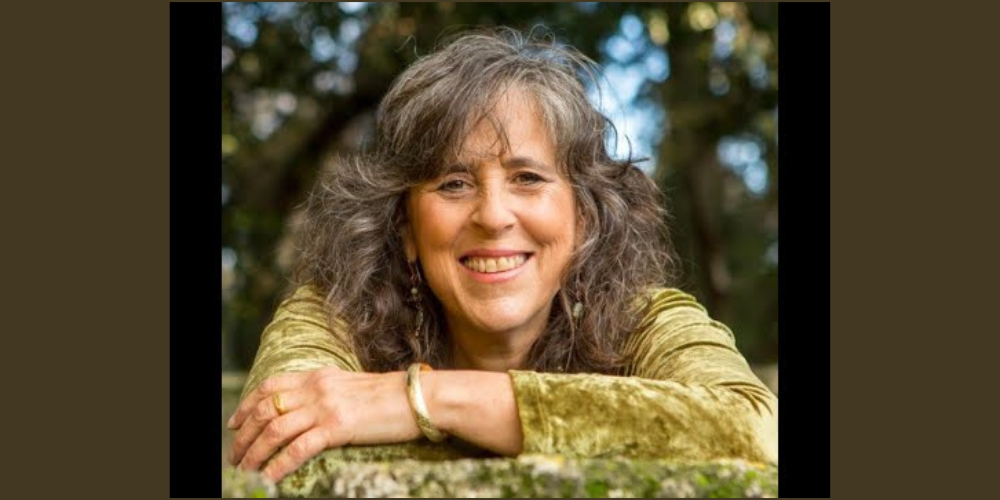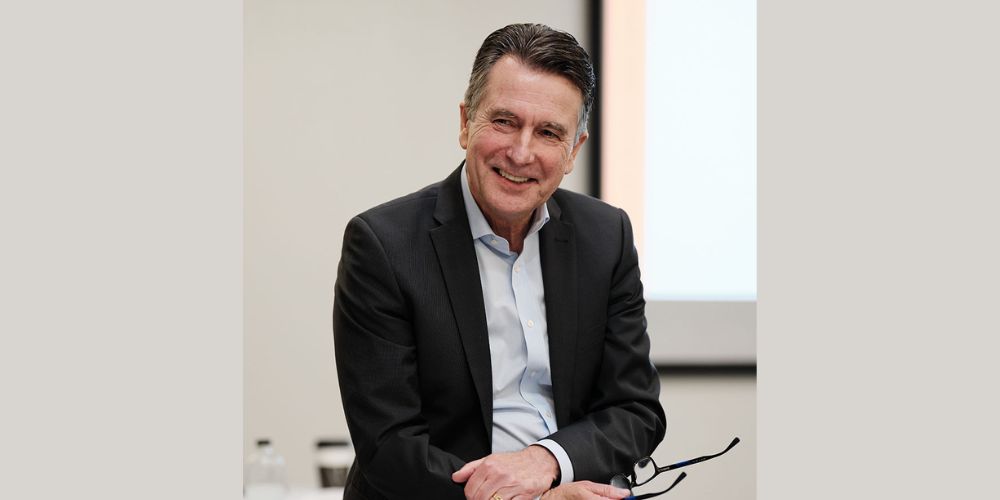Raj Girn: My guest today is leadership expert, author and keynote speaker Vanessa Loder, who climbed to the top of her respective field in business only to realize that she had been climbing the wrong ladder all this time.
Having checked off all the boxes — undergrad degree from Columbia, MBA from Stanford — her career was poised for success, but once she tasted it, she realized that the success that she had accomplished was not the same as the success that she was craving.
Here is our conversation:
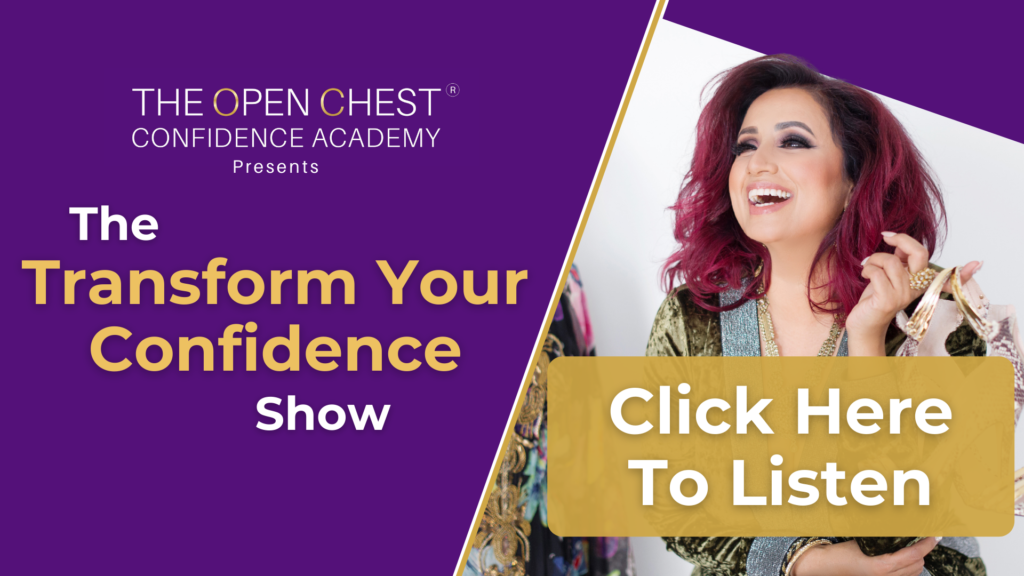
Raj Girn: Please welcome to the show, the fabulous Vanessa Loder. Welcome, sweetheart. Are we going to have fun today?
Vanessa Loder: Yes, we are. Thank you for having me. And what a beautiful introduction.
Oh, my gosh. Well, that’s just the most encapsulated version of your magnificent journey. And for the rest of the episode I hope we’re going to be able to at least tap into some of that. So, let’s begin with this, Vanessa: What happened at the top of the ladder? What did you discover when you got up there?
Well, I discovered that it did not lead to the happiness and fulfillment that I assumed it would. And, not only that, I sort of had this belief that if I follow the rules and go to a good school, get good grades, get a good job, get a promotion, climbing to the top of that ladder that it would lead to lasting happiness, fulfillment, joy, peace of mind.
It didn’t. And not only that, but I would lie in bed at night with my mind just racing, thinking of all the things I didn’t get done that day and all the things I had to get done the next day. And I remember thinking, this is success?
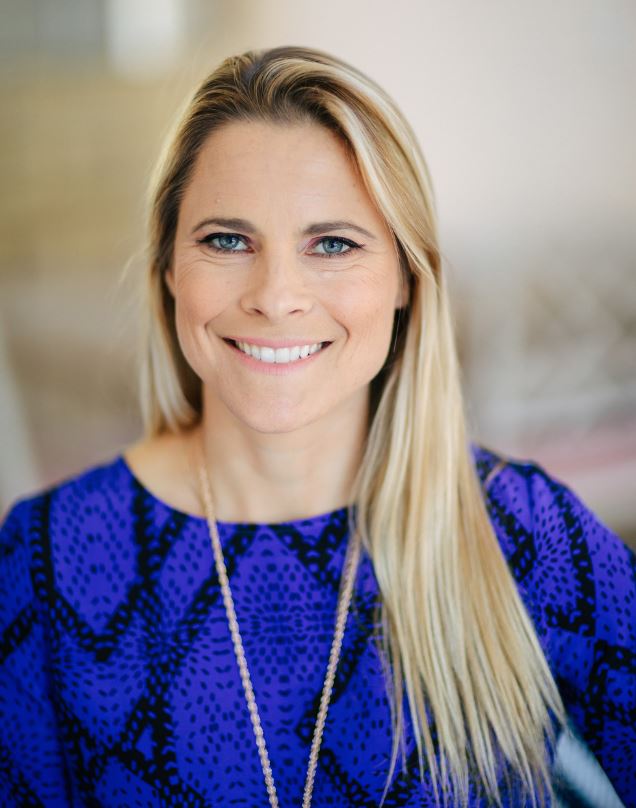
Credit: @vanessaloder.com
This feeling that it’s never enough. The to do list never ends. This doesn’t feel like success to me. And I would also look at the partners at my private equity firm and think, I don’t really want their job. That’s the track I’m on.
But whose track is this really? Why I made all these choices and yet it hasn’t led to the inner satisfaction I was expecting.
What steps did you take to course correct? I know that’s a loaded question. Share what you feel, what makes sense to you.
Well as any good over achiever will do, I started researching and tapping into my network. I started reading a lot of books. I started studying mindfulness, the neuroscience behind behavior change.
I went on five-day and 10-day silent meditation retreats. I hired an executive coach. I trained in something called neuro linguistic programing, which is a way to rewire your neurology, to change your response to stress.
And I was doing all these things, frankly, just for myself, not thinking I would turn this into a business at all. I read a book called ‘Many Lives, Many Masters’ by Brian Weiss, which is all about past lives and reincarnation.
And I just read that book and something inside of me went, I totally believe in all of this. And I never thought about it or thought it mattered. And that was the door that opened to lead me closer to my own soul. And I think there’s lots of doors you can go through. But that was the one that called to me.
I always find it interesting when I speak to a woman, especially who has been type A all her life, because we’re taught as women that in order for us to be able to work and be in the business arena that we need to be like men.
These are the things that we were taught, right? And you can’t really so much, although this is a whole other topic of discussion, blame the men of today for that because they’ve also been taught the same thing.
And infrastructure’s been created by men for men. And if you want to be successful as a woman, you’ve got to bring your masculine game to the table. So, what I’m feeling from, what you’ve shared with us so far, is that you looked at other alternatives to step into what you felt success meant to you.
Can we maybe touch upon some of that before we talk about the one thing that I’m really excited to talk about, and that is the book that you have released. Let’s bridge that gap a little bit.
Well, I love what you said about taking on a masculine persona to succeed in the business world, because I was certainly someone who did that. And, look, I grew up as a tomboy. I played soccer in college. It was natural and easy for me to do that.
I tend in that direction already. But it got like extra exaggerated. Like those muscles got really strong. I used to wear these shirt blazers when I worked on Wall Street and curse like a sailor and once wolfed down a 12-inch Subway sandwich in less than seven minutes on a dare.
Well, all the partners cheered me on.
You did all the big things.
I did all the things. And I was pushy. I didn’t even know that I was repressing some of my feminine nature and especially my intuition and these other forms of wisdom, like body wisdom.
I didn’t even know how out of touch I was with those things because our culture doesn’t really talk about it or teach us to tune in that way. So, for me, what bridged the gap was I decided I wanted to quit my job in finance.
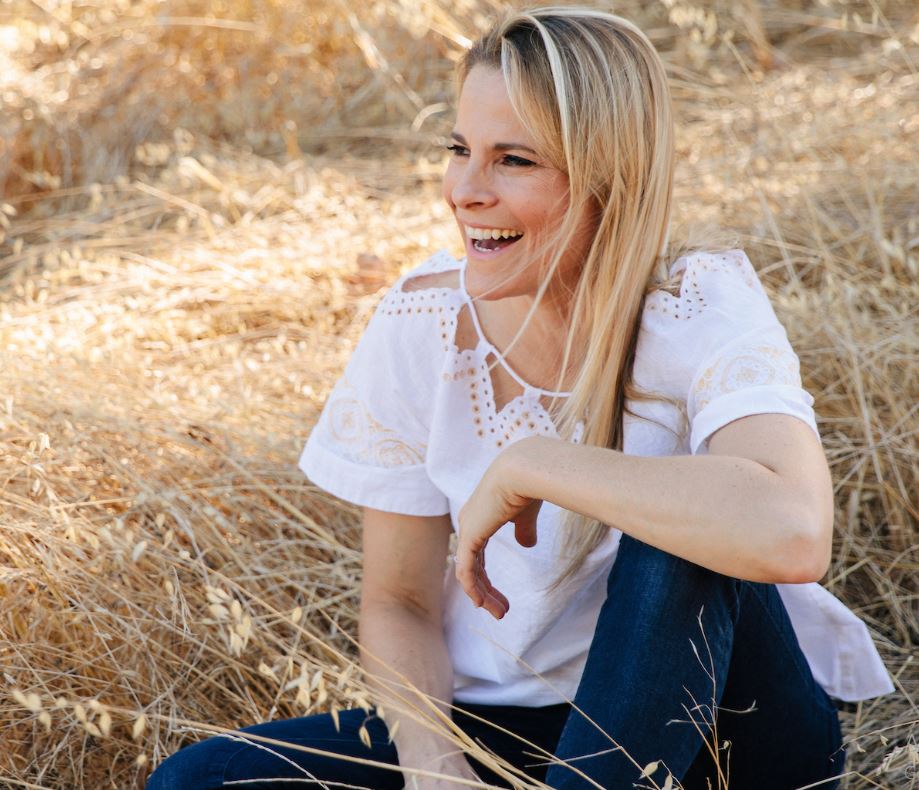
This was in August of 2009. I’m going to wait till the end of the year to get my bonus as one does. So, I had several months to start to do this soul searching where I was getting my Ph.D. and soul searching, talking to all kinds of healers and coaches and neuroscientists.
I was going to start this baby products business and I was being very MBA about it where I’d done a consumer survey. I was going to raise venture capital so I could pay myself a salary right away. And I woke up one morning, I thought, wait a minute, I don’t really give a crap about baby products. I did not yet have children at this time.
And I realized, I’m thinking of starting this company because I think it would be a good business and it would make money, but not because I’m passionate about it. And if I start this business, I’m just going to be an unfulfilled entrepreneur and an unfulfilled private equity investor. I’m just switching gears without changing the underlying dynamics.
And I still remember I went for a walk on the beach by Crissy Field in San Francisco, and I just had this moment where this thought came through me, which was my whole life. I have been following my ego and my mind and my wallet and not my heart and my intuition. And maybe that is why I’m so fundamentally unfulfilled.
And if I want to find work that I really love, maybe what I should do is try a radically different approach. So I ended up making a commitment to myself to quit my job with nothing planned. And I gave myself six months to make it feel safe because that was a very scary thing to do.
For six months, all I’m going to do is follow my heart and my intuition. I don’t even know what that means. I don’t even know how to do that yet, but that is my mandate to myself. And if at the end of six months I haven’t found work that’s more fulfilling, I can always go back to finance or start that baby products business or take a safe job.
And that’s what I did. And it was wild how quickly things unfolded when I made that bold commitment.
Was there any sense of fear? Any sense of failure? All of the above, I’m assuming, right?
Yeah. I write about this in the book, but I think when we let go of the known that we’ve built the identity of who we thought we were to try to step into who we’re becoming, you enter this liminal space that I refer to as the hallway.
“I think when we let go of the known that we’ve built the identity of who we thought we were to try to step into who we’re becoming, you enter this liminal space that I refer to as the hallway.” ~Vanessa Loder
There’s that great quote, “When one door closes, another opens.” But there’s another woman who added on to it and said, “When one door closes, another opens, but the hallways are a bitch.”
I love that. I’m so stealing that. Who is it from? Can I quote that?
This woman, Ronnie Case. She’s a breast cancer survivor. I have that quote in my book because it’s just so good. You can find the blog. She wrote about it online. But yes, the beat in the hallway is terrifying. It’s so scary because we’re on shifting sand, we’re leaving the old, but we’re not yet solid in the new.
So it’s a very vulnerable space to be in. And this other part about it is our family and friends, because they don’t like being in the hallway. They project their fears onto us. So then you get all those questions about what are you going to do?
Do you know what you’re going to do? What are you going to do next? Do you have a plan? And so then it makes it even harder because you feel like you have to justify it to the people outside of you who love you.
They’re concerned. They’re coming from a good place. But it just piles on the fear at a time when you’re already pretty vulnerable.
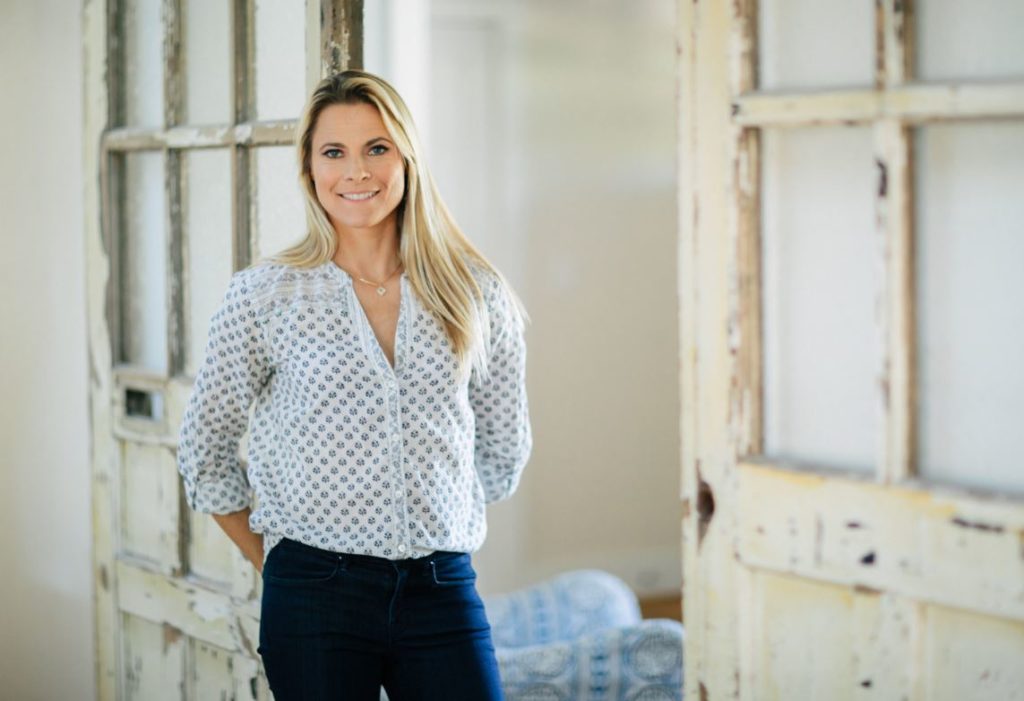
Absolutely. Folks, if you’re just joining us, I’m speaking to this fabulous lady. She is absolutely tremendous. Her name is Vanessa Loder, and she’s going to give us some lowdown on some of the things that as women should be thinking about instead of the things that we’ve been, you know, conditioned into believing you should be all value system.
She is a TEDx speaker, and an executive coach with a spiritual twist. You’re hearing some of that, you know, come to be here. And she’s also the author of The Soul Solution A Guide for Brilliant, Overwhelmed Women to quiet the noise, find their superpower and finally, feel satisfied.
We are going there today for sure. Vanessa, can women really have it all? And what does all even mean even more? What does it entail to accomplish the all gasps?
I love this question for so many reasons. So first of all, I think it’s important to name that even the whole debate around can women have it all is related to what I have made up a term called trickle-down patriarchy. I think it’s a it’s a form of trickle-down patriarchy, because that question implies actually that women should do it all for everyone else all the time.
And why are we not asking that question of men? Because we’re not asking them to do it all. I remember once I was giving a keynote corporate talk, I think it was at Salesforce in downtown San Francisco.
And I passed this working girls café and it had a sign outside that showed a woman in heels running with a cup of coffee in one hand and a briefcase in the other hand. And I remember just stopping dead in my tracks and being like, This is what’s so messed up about the stories we tell about what it means to be a working woman. And why is she running in heels with a coffee cup and a briefcase? Also, who, who has a briefcase anymore?
But yeah, but a man wouldn’t be running unless a building was on fire. But if you look at all the images of moms, of working moms, of working women, it’s this frazzled, harried woman who’s got eight octopus arms. And so, this myth of the superwoman is something that has been part of our cultural narrative for a long time.
And the issue with that is that it has seeped into the minds of women and caused us to create perfect pictures in our minds of what it should look like to be a good worker, a good mom, a good wife or a partner. And then what we do is we berate ourselves and criticize ourselves when we fail to match those images.
And then when we notice self-criticism, we blame ourselves as if that’s our fault and we should fix it. And so my book, The Soul Solution, debunks this myth and replaces it with timeless soul-based strategies for thriving. Because I really consider myself a feminist spiritual teacher.
And I found, on my own journey, I had to really unpack and unwind a lot of these toxic beliefs that I had about success, about being a working woman, about being a mom in order to create what I call more soul-centric success that’s aligned with my values, that supports my well-being, that allows me time for leisure and pleasure and rest and all these things that, as women, I think we’ve been denying ourselves for a really long time.
“I found, on my own journey, I had to really unpack and unwind a lot of these toxic beliefs that I had about success, about being a working woman, about being a mom in order to create what I call more soul-centric success that’s aligned with my values, that supports my well-being, that allows me time for leisure and pleasure and rest and all these things that, as women, I think we’ve been denying ourselves for a really long time.” ~Vanessa Loder
It’s really interesting because I think that’s kind of the crux of it all, especially in the world that we live in today. How do we be this version of ourselves that actually makes us happy, makes us feel fulfilled when the external noise of the world state this as toxic hustle culture, right?
How do we look at what we truly want versus the pressure of all that noise? And not feel like we’ve failed by going down the road of being happy as opposed to making a million bucks or whatever that may be. You know what I’m saying, right?
Look, I love money, and I don’t think we should have to sacrifice our goals and our dreams. It’s just, is that goal really aligned? And are you pursuing it in a way that feels good supporting to you to your whole selves? In terms of getting out of the toxic hustle culture, I mean, the first step really is to name it all, because otherwise it is just the water we swim in, and we don’t even see it.
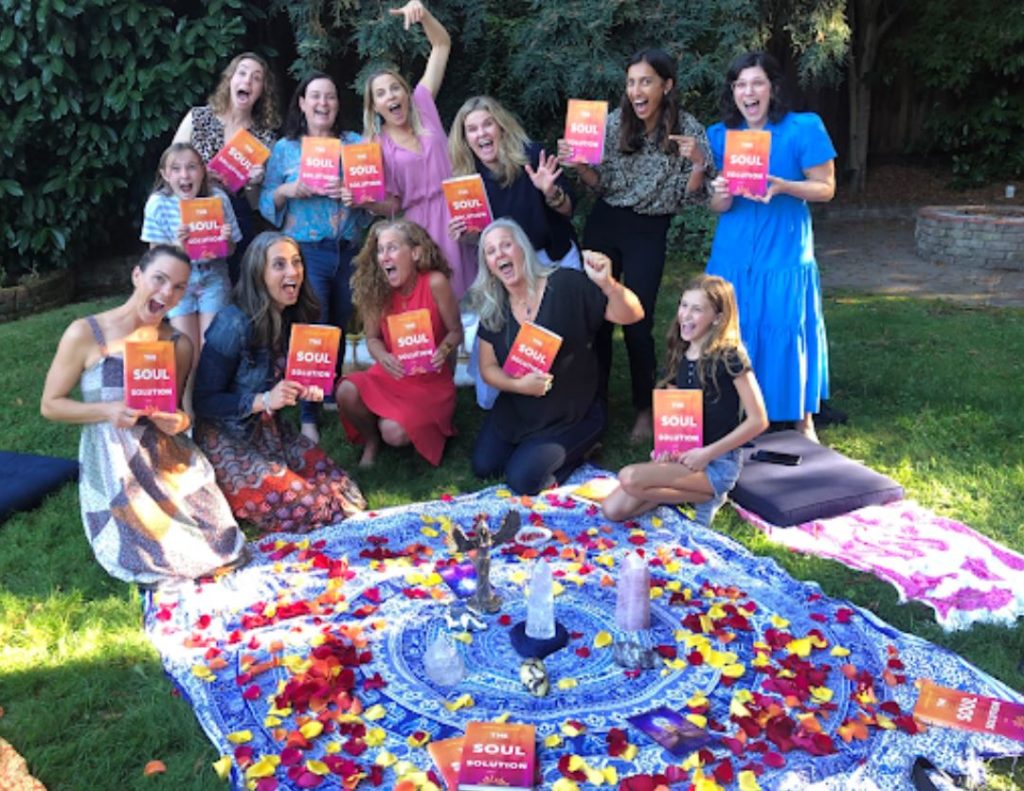
So in my book I lay out a whole bunch of beliefs that we have as a culture that I think are not serving us, that are part of the old paradigm of success. I call it the success myth. So, you can think of some of these as like no pain, no gain. You have to sacrifice.
Caregiving is women’s work or caregiving is less valuable. There are all these beliefs. So, you want to start to name them and then I recommend people source those beliefs. You know, just where did you get them from? And then you can do some belief reprogramming to choose new beliefs going forward. A very simple thing you can do.
For example, part of the toxic hustle culture is this belief that busy is a badge of honour and that the busier you are, the more valuable or more worthy you are. And so, I recommend often what people say, how are you doing?
People say, I’m busy, so busy, crazy busy. It’s like we all opt into this narrative without realizing that we create the narrative. And I’m a big fan of simple embodiment tools to help people really get a sense in their nervous system of this old paradigm and then the new paradigm that I’m talking about.
I have a lot of guided meditations and things that help people go from the hustle state to more of a flow state. But a very simple way you can do that is if you just say out loud right now, “I am busy, I am busy.” And just notice how you feel in your body, what kind of like posture and stance you want to take.
I notice my whole body starts to get rigid and tight, but I also feel kind of important in a good way. When I say I am busy, I’m like with hands my hips, you know? And then you just break state like wiggle your hands to let go of that and then say, “I am relaxed. I am relaxed.” And just notice how you feel in your body.
My whole energy shifts, my jaw relaxes. I feel my body open and expand. And so, the words that we tell ourselves about ourselves matter, the words that we use to describe ourselves to others, they matter. A very simple thing is when people ask you how you’re doing, stop saying, “I’m so busy.”
One of the things I’ve done . . . I mean, look, I’m in the middle of a book launch right now. I have two small kids. I have a lot on my plate. For example, this week, what I do is when people ask me how things are going and I have a week like this where I just there is really a lot going on, I’ll just say, “I’m really full. I’m really full this week.”
And it sounds silly. It’s a small tweak, but it really does feel better to my nervous system. But that’s just an example of something people can do.
Absolutely. Vanessa, what is the success myth that you talk about that you discovered once you’ve got up there? I mean, how do we fix our culture’s obsession with materialistic gain over holistic wellness and practices and modalities?
I mean. I said it like that. I said it like, how do we do that? It’s the most difficult thing you would think in the world and the pressure and the infrastructures that we’ve created and a lot of what you just finished talking about.
It can feel like a very daunting task. But I also think, for example, something like COVID has the silver lining that it’s actually unwinding a lot of the success myth because, for example, the success myth is this outdated belief and definition of success as being very myopic.
It’s all about how much money you make, your promotions, your power over others rather than taking into account the whole being and the whole wildness, and the old definition of success is also about growth and growth being defined as top line revenue growth and profit growth above all else. So, it’s this singular focus on growth rather than considering, for example, the impact on the environment or the wellness of your employees.
And so, it’s just starting to name and notice that. And there are a lot of companies now with triple bottom lines or more conscious leaders who are recognizing we have a web of connection with all of life and perhaps we should be defining success differently.
So, I do think it starts with each of us individually waking up to it and making different choices, but it is helpful to know some of the research behind it. And when I dug into it, I was really surprised to find that today’s success myth can be traced back to the Industrial Revolution.
So did you know, for example, that medieval peasant worked on average way fewer hours than we do today, and that in ancient Greece, the Athenians, they had up to 60 holidays a year. And in 1930, economists were predicting that by the year 2030, people would only work 15 hours a week and they’d have plenty of time for leisure. And yet these things didn’t come true.
We don’t even have 15 hours of leisure. We don’t even have that quotient, unfortunately.
No, we don’t.
And it’s really interesting you talk about the Industrial Revolution because even in terms of the family dynamic pre-Industrial Revolution, most societies had communal family living, the extended family scenario. So, there was a lot of support.
There wasn’t so much demand on one human to do all the things. There was so many of us involved in making sure that there was a cohesive ecosystem that we all resided in. There was a lot more happiness in that realm.
Then came the Industrial Revolution. As you just mentioned, it’s such a pivotal point in history because that’s when it came about this whole idea of the nuclear family — the husband, the wife and the kids. Who the hell ever came up with that concept?
I have no idea what their goal was or why they felt that this was a successful way for people to coinhabit these tiny, little isolated, trauma-driven, high-anxiety environments that we are still living in today.
And that’s the kickback that I find with people like you, books like yours. A lot of this feminine way of thinking of things, balancing of feminine with our masculine, this whole idea behind giving men this bad rap. Which I feel is a sad place to be because we have to also remember that men also have the pressure to be uber-masculine.
There is a dynamic here that needs to change across our entire value system. I want your thoughts and comments on that.
I completely agree. Everything you say about the nuclear family and parents, especially mothers, are so isolated when they have children these days and they’re doing it all alone.
They don’t have that fabric of the community in a lot of places. And I think finding your tribe, finding a community wherever you live, is a really important part of the whole solution. And getting out of these ways of being that aren’t really serving us. And I also agree with what you said around young men.
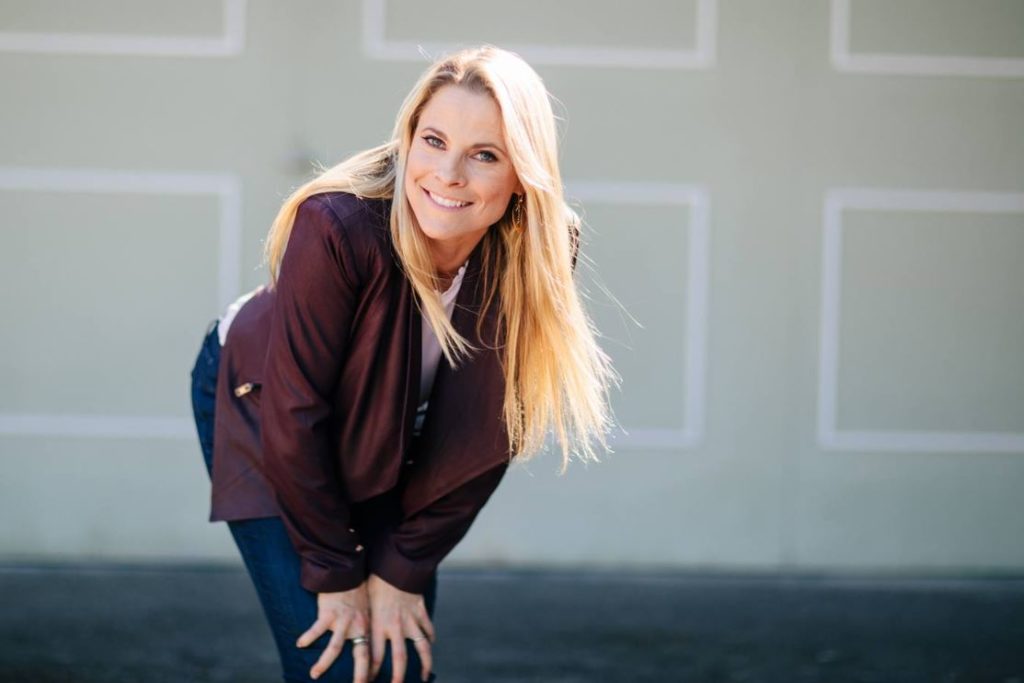
They’re not thriving either, as a lot of millennial men are now saying that they really want to be involved fathers. And how do they do that and balance work with the old expectations of what it means to be available all the time. And I think men do feel tremendous provider pressure that’s a lot different than the mom guilt or the caregiving pressure that women feel.
“I think men do feel tremendous provider pressure that’s a lot different than the mom guilt or the caregiving pressure that women feel.” ~Vanessa Loder
Just noticing how you might be falling into those traditional roles with your partner or just in your own life and naming that and making different choices accordingly. I also think it’s really important for leaders to recognize that if you want to attract diverse talent and retain your employees, you’re going to need to get on board with a new way of working.
And I get really excited talking about COVID being a great disrupter. The silver lining of it, a lot of senior leaders I’ve talked to have said, “Oh, yeah, we’re not ever going back to the office five days a week. We’re always going to be flex schedule.”
And I have a husband who was commuting before COVID and now he’s here working two or three days a week from home, and he’s able to take the kids to activities, help clean the kitchen between meetings, help pack lunches and things that he wasn’t available to do before.
So, he’s a much more involved father and husband now that he has a more flexible schedule. And other companies have told me it’s not just because they want to be around their families more, they want their employees to have more time with their families.
But we’re saving money on commercial real estate. It’s a smart business decision to not go back to the office five days a week. So, I hear a lot of stories that really give me hope.
Yeah.
There’s one investment bank, for example, that has an anonymous reporting line. They’ve told employees now from Friday night until Sunday morning, you can’t work, you can’t email your teams and ask them to do anything.
And if you get an email from someone senior asking you to do anything after Friday night, you forward it to this anonymous reporting line and that person gets talked to.
Oh, I love that. That’s just incredible. I think it’s great because we have to police the leaders, too. And that’s been a big problem as well as they’ve gotten carte blanche over the entire infrastructure because by default of the position they’re in, the hierarchical position they’re in. So, it’s good that we get to police everyone and not just the worker bees.
Yes. And because with advances in technology, you can work 24/7 now. And so, that’s not okay. And sometimes people aren’t good at setting the boundaries themselves or they need to feel like they have permission from the person they’re reporting to, to set the type of boundary they need for their own well-being. So it’s good that these kinds of programs are getting rolled out.
“Sometimes people aren’t good at setting the boundaries themselves or they need to feel like they have permission from the person they’re reporting to, to set the type of boundary they need for their own well-being. So it’s good that these kinds of programs are getting rolled out.” ~Vanessa Loder
Absolutely agreed. I want to get into your book, but before we step into that, I want to ask you something. Do you have the ability for people to work with you? And if so, what does that look like and where do they go?
I love that question. Well, it’s funny you should say that, because I’m actually launching a brand-new coaching program that’s going to be based on the book The Soul Solution.
Let’s take a look at that again. There it is guys. Go pick up your copy. It’s so sexy looking, too. I love the colours that you put out.
Thank you.
It’s interesting because it’s like you’ve got the colours of the root chakra and the sacral chakra. Was that purposeful?
I do love bright colours. In terms of coordinating with the chakras, that was not intentional. But it is fun to think of it that way.
So I do have an online course called Create Working Love, but with a book coming out, we’re going to be launching these new group programs, sort of like a divine book club of sorts, where I’ll be guiding people through a lot of the tools and activities in the book.
So that’ll be rolling out just in the next month or two for people to join. All they need to do is buy the book through the website and take a screenshot or save a copy of their receipt and then you’ll get into the first live class or two for free. And then you can see if you like it and stick around.
I love that. And if people want to know more about you, where do we send them?
Yes. vanessaloder.com. And then if you want to get the book, you just click on the big word that says Book.
I love that.
Make it really easy and obvious.
I love that. So let’s talk about this book. I think that we’ve done enough preface to the book. I feel people got a sense of who you are, the space that you emanate from and why you’ve made this really conscious decision about what your life needs to mean for you and that you actually value your life.
That’s a really big thing. Let’s talk about this book. Folks, if you’re just joining us. The book is called The Soul Solution: A Guide for Brilliant, Overwhelmed Women to Quiet the Noise, Find Their Superpower, and (Finally) Feel Satisfied.
Do I need a copy of this book or what? Before I quote some aspects of the book for you to elaborate on Vanessa, can you just share with everyone watching, listing and reading this what the book is about essentially in terms of the journey you’re taking them on?
The book is really a roadmap to be able to access and trust your inner voice, your inner truth and your soul, and really live and breathe and move in the world from that place rather than doing what you should do, people pleasing, feeling, exhausted, overwhelmed, resentful.
“The book is really a roadmap to be able to access and trust your inner voice, your inner truth and your soul, and really live and breathe and move in the world from that place rather than doing what you should do, people pleasing, feeling, exhausted, overwhelmed, resentful.” ~Vanessa Loder
Learning how to really trust yourself and give yourself permission to follow a path that’s more aligned for you.
What is that big idea in one sentence to encapsulate it for everyone? The big idea of your book is.
It is the myth of the superwoman who can do it all has dominated our culture, seeping into the minds of women. And this book debunks that myth and replaces it with these timeless soul-based strategies for thriving.
I love everything about it. Can I tell you that pretty much 80 per cent of my girl tribe is going to need to have this book because they haven’t figured this out? I’m still on the journey myself.
Me too. I mean, they say you teach what you most need to learn. I have not mastered anything in this book. I wrote it basically for myself as I’m struggling with all the same things. And I was like, I need to figure it out.
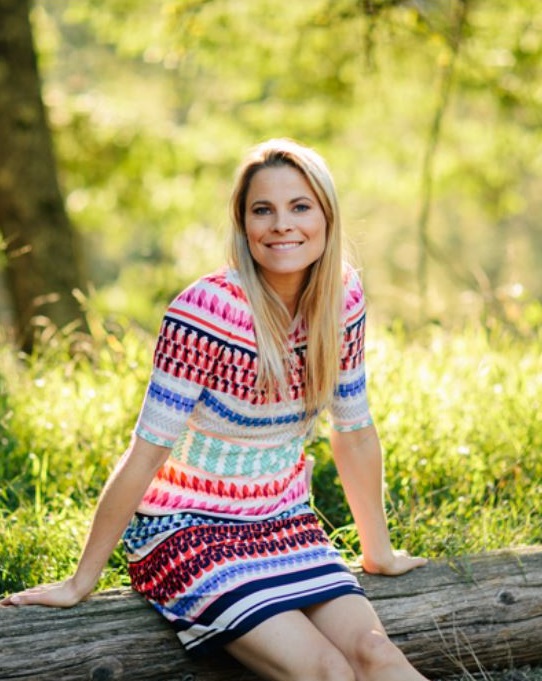
I love that. So let’s talk a little bit about who is this book for? Is it just for women?
It’s for women. But the tools, the strategies in the book completely work for men. It’s just through the lens of the struggles that are more specific to women.
The pain point is for burned-out, overwhelmed, exhausted women who have been doing what they should do, following the rules or pursuing achievement for achievement’s sake. It’s for working women or women who are full-time moms, and caregiving.
We both have really benefited from the tools and strategies in the book. We asked for overwhelmed, burnt-out women who want to have it all, but they don’t like how society has defined what “all” really is.
They want to find what their “all” is, and they want to do that by learning how to tune into their heart, their intuition, their deeper truth.
And that’s what this book helps people journey through to figure that out for themselves because we all have a different definition of what that means, right?
Exactly. And that’s the thing, because I remember talking to my editor about this early on. It’s not a single solution. What I talk about in one of the chapters of the book is we all have been told to follow these gold standards in different categories, like a gold standard of beauty, especially in the West, which is like white, skinny, blond, lots of hair on your head, but no hair anywhere else.
You know, there’s a gold standard of what it means to be the ideal worker, what it means to be the ideal mom or parent. And so, as women, we feel pressure to meet these gold standards and all these categories.
“There’s a gold standard of what it means to be the ideal worker, what it means to be the ideal mom or parent. And so, as women, we feel pressure to meet these gold standards and all these categories.” ~Vanessa Loder
And what this book is about is, instead of doing that, helping you tune in to your true North Star. And your true North Star is not a singular destination because it’s always evolving as you’re evolving.
I used to think I’m going to figure this out and be done for good, but that’s not how it works when you’re on a more solid base path. Our Western culture is very linear and logical and rational, and it will tell you do anything to get to A, to get to B, to C.
But if you really want very lasting satisfaction and fulfillment and joy and you want to follow the whispers of your soul, it’s a process of discovery, of evolution. And it’s nonstrategic, it’s non-linear. You know, A goes to Z goes to K, and then you go to L and you realize you love L and you hang out there for a while and then you go to O.
It’s a very different way of living your life. It’s not following the prescriptive roles that society gives you, and instead it’s tuning to your inner wisdom and guidance, your true North Star, and continually moving towards that, aligning with that over and over again.
Now, let’s talk about some of the phrases, some of the aspects in your book. You talk about energetic breadcrumbs. What are these and how can women find theirs?
I love to take these maybe esoteric concepts and make them very tangible and practical for people, especially for busy women. Your energetic breadcrumbs are those moments when you feel really alive and energized or curious about something.
Maybe your whole body feels open and expanded, or you feel in a flow state where time goes by really quickly. And the thing about your energetic breadcrumbs is that you might tend to dismiss them because they can seem insignificant.
And yet when you track them and when you follow them, they lead you to your most fulfilling and joyful life. You can get them in all kinds of ways. Maybe someone mentions the name of a book and your inner spidey sense perks up when you hear that, you know?
Or I recommend people do what I call an energy audit where you journal each night on what gave me energy today. When was I in a flow state? And then really peel back the layers. So, if a conversation with Christine at work gave you a lot of energy, what was it specifically about that that gave you the energetic breadcrumbs? Was it Christine?
Was it the topic that you were talking about with her? Was it that you offered some suggestion or you brought these different pieces of information together? You could tell it really landed with her and helped her. What was it specifically that really gave you that breadcrumb?
As you start to notice your energetic breadcrumbs and follow them, they really do add up to a cake over time.
I love that. And we all love cake, don’t we?
Oh, please. Yes.
Absolutely. So this leads me to the next phrase. You also talk about soul board. How does that help people create more satisfying lives — this soul board? And what is it?
I’m trained in hypnosis and have a lot of tools around working with your subconscious mind. And the thing about your soul is that it often doesn’t speak. It doesn’t speak in language. It doesn’t speak in words.
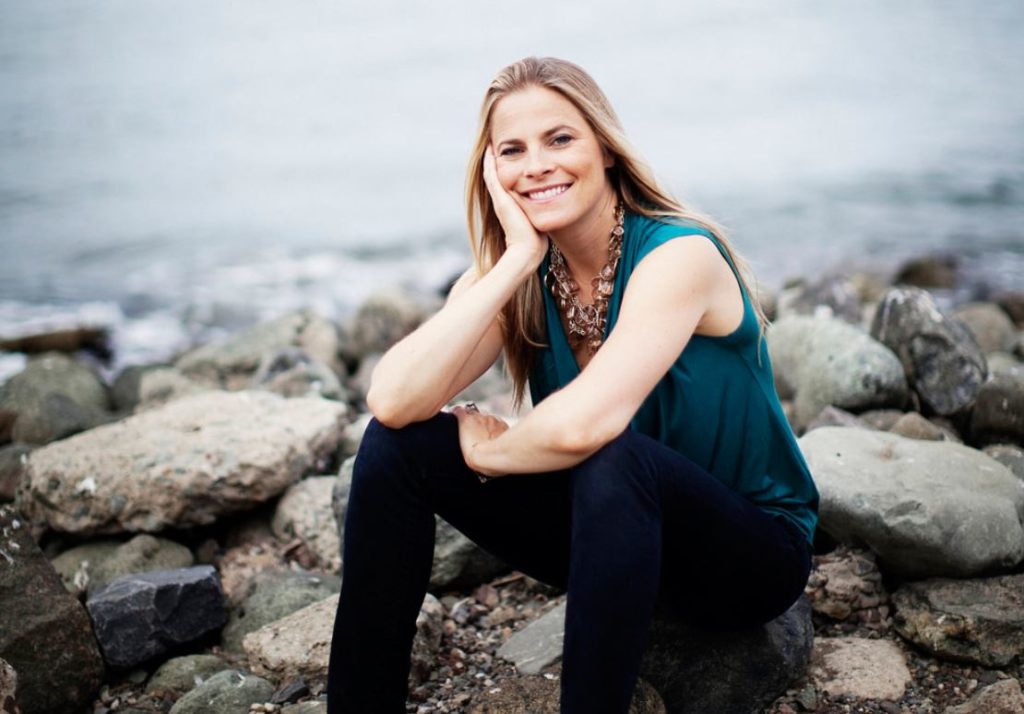
It speaks to you in symbols and images, in nature, in dreams and synchronicity and signs and curiosities. And so a soul board is one way to get messages, information from your soul, and help make it more tangible.
It’s much like a vision board. If you’ve heard of that concept. You get a bunch of different magazines that you’re going to pull out pictures, not just the word dream or my ideal house, but you’re going to pull up pictures that you don’t even know why you’re choosing them.
Something in you, you get an energetic breadcrumb about them. Your intuition is saying yes to that image. You don’t even understand why. And you’re going to choose those kinds of images and put them on a collage of sorts.
And I remember leading this once at a retreat with this woman who was a female lawyer, very much like a logical, rational thinker. She’s like, “I remember thinking, Vanessa, how is making this soul work going to give me clarity on anything? And then I saw this abstract painting of a farmhouse in a discarded art calendar. And I just knew. I just knew I had to put an offer on that house.”
Wow.
Information from a different source, from a deeper, wiser part of your being. The other thing that really amps it up after you’ve made the soul board, I recommend listening to music that you love that makes you feel very high vibration and dancing in front of it while looking at the images.
And, usually, you’ll get like a body signal that you’re really calling in some good energy. I get goose bumps up and down my arms when I’m really feeling it. And I’ve had wild things through my soul board manifested in my life with so much ease.
My gosh, I love this. A soul board, guys. We always talk about vision boards, and when we talk about vision boards it is often accomplishments in life like material accomplishments. This is a very interesting concept.
And I think that I’m going to do it on the next new moon. Because I want the upward energy on this one.
Totally. I love it. I’m just one story because it can make it more concrete. Here’s the goal I remember finding in a magazine. This picture of some sort of ape or monkey or baboon, and they were in a hot spring.
There’s several of them relaxing in a hot spring with steam coming up, so happy. Why? But my whole body lit up when I saw this image. My heart was like, yes. I put that on my soul board.
And then within a month or two, I was creating this new 30-day meditation challenge. It’s just five minutes a day. I still have it on my website. You can find it under free resources. But anyway, I was hoping for like 100 people in the first meditation challenge and I got 1,000 people and now 20,000 people have taken it.
But I remember looking at that picture of those baboons in the hot spring and I was like, that’s what called in all . . . Like they represented the energy of the meditation challenge to me in a way that I think if I cut out a number out of a magazine or something a little more ego-based, it wouldn’t have clicked in the same way.
So you went for a feeling as opposed to a concrete material possibility to manifest, right? Like when we tap into our feelings, senses, we generally are on the right track.
Our senses do know what we really want and what we really crave and what we really desire. So, it’s really interesting. I really love this concept. I’m doing this. This board is happening.
Yeah. Just send me a picture when it’s done. I love seeing people’s soul boards and then I’ll infuse my energy into your soul board.
Oh, my God, I love everything about that. Just amplification overload. It’s wonderful. Let’s talk about a couple of things that you talk about in the book as well. Firstly, I want to just quote this. You say, “Women are the canary to the coal mines.” What a statement. I’m going to say it again. “Women are the canary to the coal mines when it comes to corporate America.” You got to share. What does that mean and how do we address it?
Yeah. I mean, this gets back to what we were talking about earlier with the success myth that our corporate structures are not set up to support the well-being of the employees and women are the canary in the coal mine.
Because if you’re born in a female body, or frankly any marginalized body, these systems were set up mostly by white men for white men. So, you’re going to feel the rub even more if you’re not, if you’re in a different shape or form.
“If you’re born in a female body, or frankly any marginalized body, these systems were set up mostly by white men for white men. So, you’re going to feel the rub even more if you’re not, if you’re in a different kind of shape or form.” ~Vanessa Loder
It’s one of the reasons why I think women are opting out of the workforce is partly because of the way that it’s structurally set up. It isn’t very conducive to living the life that you really want to live.
Absolutely. And from that point, you’ve already mentioned this. I got this as part of your one sheet. Our country is facing an epidemic of burnout and women leaving the workforce at astonishing rates. You say that the proposed solution is both internal as well as external. Can you explain this?
Yeah. The point of that sentence is to make it very clear that it’s not that the onus is on women to fix ourselves or to fix the system, because, frankly, we’ve been doing a lot of that, and that’s going to be even more exhaustive.
We need allies. We need policy change, both corporate policy and government policy. I mean, the United States is the only developed country that doesn’t have paid federal family leave besides Papua New Guinea. It’s insane.
Ridiculous yeah.
We need corporate policy. We need public policy. But then we do also need to change from the inside out, because I have talked to a lot of leaders and managers who’ve said, “Look, I’m trying.” I’m literally talking to a senior leader at Salesforce the other day and she said, “I’m literally telling my employees to take time off so they don’t get burned out and they’re not taking it. They’re not taking the time. So how do I get people to make this shift?”
And so part of the whole solution is getting really clear on your values and creating your own definition of success and figuring out what really matters to you so that you can give yourself permission to, yes be successful at work. You don’t have to sacrifice that. But perhaps set some new boundaries or make some new requests. I think a lot of women, myself included, we’re so used to doing what we should do and doing what we’re told and pleasing people that we don’t realize how much power we have to advocate for ourselves to make requests.
“I think a lot of women, myself included, we’re so used to doing what we should do and doing what we’re told and pleasing people that we don’t realize how much power we have to advocate for ourselves to make requests.” ~Vanessa Loder
If you’re a major contributor on your team and you say, “Hey, look, I want to leave early on Tuesdays to make my kid’s soccer practice.” That might be less of a big deal than you think it is. I have clients who one of them, she negotiated to work four days a week instead of five without a decrease in her salary so that she could spend one day a week with her kids.
And I try to share stories as much as possible, because the more we share the stories of what we’re doing and creating, it can give you confidence that it is possible. Maybe I can set some different boundaries or advocate for myself in a new way.
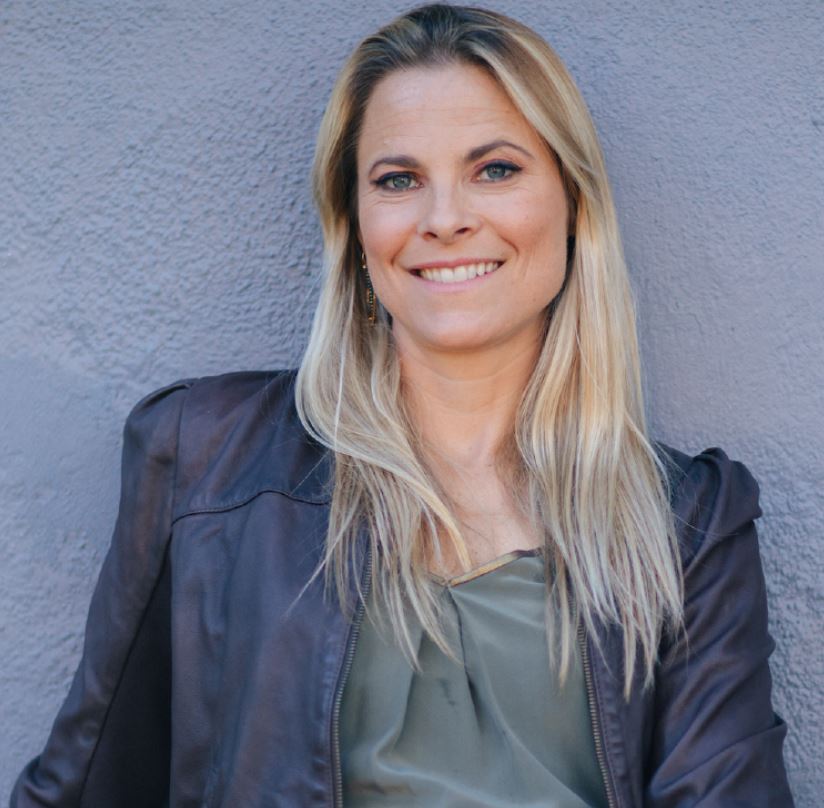
Absolutely. And you just brought something to my mind that I want to share with you. For the longest time, within my company, I’ve always talked about if you get your tasks done within five hours and you’ve got like 20 hours that you are supposed to get it done, then the rest of time is yours because you’ve already done the production that was required for that send compensation.
So, you’re done. You’re good. And I feel that. Just think about what that does in people’s minds. It’s a lot. And people’s hearts and their feeling of a sense of value for themselves and by you as their leader. All of a sudden you start getting massive amounts of production done, excellent work done, and they also get this time off.
That’s really the way that life should be and is a lot of what you’re talking about really just points in that direction. What’s your comment there?
I love it. I think it’s a very great point. And I’m a big fan of Celeste Headlee’s book ‘Do Nothing’ and she talks a lot about that, where we can structure our days, where we can actually have more leisure than we realize.
She did a very detailed time log on herself for a couple of weeks just to track how she was actually spending her time. And she found she was spending it on social media in ways that didn’t really move the needle or bring her that much joy and all these little ways that she was giving up her time that weren’t really beneficial or in her highest good.
She now works until 3 p.m. and then she’s done because she works in very focused increments. That’s one of the other things I talk about in the book. If you want to get out of the success myth, the old way of working, the old paradigm tells us that it’s at your computer for eight hours a day and work straight.
Turns out all the research on the brain says we are much more effective if we work in pulses. Our brains and our bodies are constantly going in these waves or these pulses. Just like at night, you have REM cycles. That’s like 90-minute cycle. Turns out your brain does the same thing during the day.
So, the best way to work is to have a very focused period of time. You can start in 20-minute increments, maybe work up to 60 or 70, and then you take a break for two to 10 minutes and you completely disengage. I’ll do a couple of those pulses and then I’ll take a longer break, like a 45-minute break and go on a run or do yoga.
That’s how I wrote my book. People couldn’t believe how quickly I wrote my book while running a business and having two kids. But I was working in these focused pulses and I only worked for like two hours in the morning and that was it.
And then I was done for the day, and I would take a break, do some stuff for my business and be off in the afternoon. So, we really can get more done. It’s just that we’ve gotten too distracted with multitasking, right?
If you have multiple browsers open and you have social media open and you’re trying to work on something, researchers found that it takes 20 times the length of the interruption to get back on task.
So, if you check one email for one minute, it’s like 20 minutes to get your focus back on whatever you were doing. There are more effective ways for us to work and then we can have even more leisure time.
Absolutely. Guys, if this is something that is a core problem for you, which is the me time aspect, the time with the people that you care about, I really think that you’ve got to pick up this book. You’ve got to go grab it. I want to know, Vanessa, where are we sending people to go grab the book and what format is it available in?
Well, the best place to get it is actually on my website where I have links to all the retailers where you can buy it. But if you go to vanessaloder.com/soul-solution or just click on the word “Book” at the top.
I have a page where if you buy it through that page, I have a whole resource vault filled with guided meditation videos and downloadable PDFs that are company resources to help you do all the exercises and some of the meditations in the book.
So that’s the best place to get it if you want all of that very bonus content. You can also buy it on Amazon, Barnes and Noble, Indie Books. Sounds True. Lots of different websites.
That’s wonderful. Well, we’re getting ready to close off. And I wanted to ask you a couple things around bringing us back and honing this back in.
You also say, and I’m going to quote this again, Vanessa, “Women have been so grateful to have a seat at the table that we haven’t questioned how the table is and has been set all these years.” What’s the solution Vanessa? Can you share that?
Well, I firmly believe that as we each learn how to go within and trust ourselves and our inner voice and our inner wisdom, and we act the way we reclaim our inner power and then we live and breathe and move from that place.
That is how we’re going to craft the radical solutions that, frankly, our world really needs at this time. It’s not going to be by following the rules and supporting the structure that’s already been created. We need radically different solutions. And the only way we’re going to get radically different solutions is if we start to be radically different and we have to stop following the rules and create our own playbook from the inside out by trusting ourselves fundamentally is what it comes down to.
“It’s not going to be by following the rules and supporting the structure that’s already been created. We need radically different solutions. And the only way we’re going to get radically different solutions is if we start to be radically different and we have to stop following the rules and create our own playbook from the inside out by trusting ourselves fundamentally is what it comes down to.” ~Vanessa Loder
Absolutely. To loop back to the show’s title, are you climbing a ladder that’s taking you to the wrong destination? I want to ask you this, Vanessa. Is there anything you feel that I may not have touched upon that you’d like to leave people with around that?
I just want you to know, wherever you are on your journey, whether you’re struggling or what you’re dealing with, I just want you to know that I see you. I want all the women out there to feel seen, to feel heard, to feel supported, and to know that you matter, that you deserve more, that you deserve better, and that you have the power to create that for yourself.
And the other thing I want to say is that when women gather together in groups or just like you and I talking right now, we build this energy in this power, this connection that makes us truly unstoppable. And so, if you do feel alone in your struggles, find other women. Find a tribe. Gather together. That’s how we’re going to really change this paradigm.
Thank you so much for sharing your insights with everyone watching, listening and reading this Vanessa. Super valuable in today’s world, guys. Four words for you: Go get the book.
Thank you so much. You are just such a superstar. I feel very connected to everything that you have spoken about and what your journey has been all about. And I can’t wait to see all the other fabulous things that you’re going to do and come back and talk about, right?
Me too. Thank you so much for having me. I love your energy. You are a fabulous woman. I can tell you’re really a marketer and brilliant at sales just talking to you, so it’s wonderful to connect with like-minded souls. Thank you for having me.
God bless you. You blessed me and you’ve made my day. And I really hope that everyone out there got some real value from today’s show, and we’ll share it with everyone that they know.
Guys, if there’s anyone out there that you feel needs the learnings from today, please share this. I also hope that you’ll subscribe to my YouTube channel and hit the notification button at The Open Chest Confidence Academy. Please do that, guys, so that you never miss an episode. And we drop them every Wednesday, wellness Wednesdays no less.
You can also download the ‘Transform Your Confidence Show’ on podcast platforms and give it a five-star rating if you feel that it’s a valuable resource to assist in your journey, to empower your confidence with actionable insights, or if it just makes you feel good because it makes me feel good to host it for you each and every week.
You can also read the podcast as a blog article at theopenchestconfidenceacademy.com/media/podcast.
And if you need guys, this is for you guys out there if you need assistance, if you need help to work on your personal branding, your media, your marketing strategies, and you’re looking for a really holistic way to do it so that you’re showing up very authentically as the multilayered human that you are that’s consistently on a journey of change, head over to my website at theopenchestconfidenceacademy.com and book a free discovery call so we can see what magic we can do together to elevate and empower your brand even further.
And when I talk about brand, guys, I’m not talking about the pop cultural brand word that everyone talks about. I’m talking about the essence of your being that makes you uniquely who you are. That’s the place that you need to build your brand from. And that’s the place that I can help you find. So go to the website and go book that discovery call. You’ve got nothing to lose and everything to gain.
And I’ll see you next week my darlings for another valuable episode packed with insights, learnings to empower your work, your life and your spirit. I love you. I’ll see you next time.




